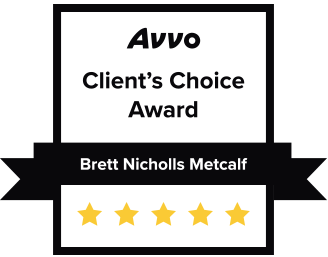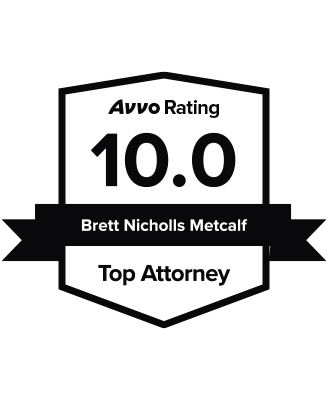Federal gun charges carry serious repercussions. In addition to steep fines and time in prison, a conviction could strip you of your Second Amendment right to own a gun. With your freedom at stake, you need an experienced federal gun charges lawyer to protect your rights and clear your name.
Metcalf Falls, Criminal Defense Attorneys, P.A. is here to help you defend against federal gun charges and preserve your future. Call our Tampa office at 813-258-4800 or fill out our contact form to get started.
Gun Laws in Florida & the United States
Federal charges are higher charges than typical state crimes. Federal gun charges can arise as a result of violating U.S. gun laws. The National Firearms Act (26 U.S.C. Chapter 53) covers gun dealers and manufacturers. The Gun Control Act (18 U.S.C Chapter 44) applies primarily to gun owners.
These laws outline federal requirements for owning, purchasing, manufacturing, transporting, and distributing firearms in the U.S. For example, licensed gun dealers must conduct background checks to ensure they only sell to eligible purchasers.
Federal gun laws also cover interstate and international commerce of firearms, as well as sentencing enhancements for possessing a gun while committing a federal crime (i.e. armed drug trafficking).
What Are Florida’s Firearm Laws?
State laws cover areas left untouched by federal laws. The state can pass laws covering intrastate gun transactions, gun licensing, and registration. They can also restrict where gun owners can carry their guns.
Finally, these laws can enhance state crimes committed with a gun. For example, the CPC scoresheet used by judges to calculate sentences adds either 18 or 25 points to your sentencing assessment if you commit a crime with a firearm.
Consistent with its reputation for liberal gun laws, Florida does not require licensing or registration. Florida gun laws/requirements only add three limits to federal laws. People in Florida cannot own a gun when they:
- Are under 24 and committed a juvenile crime that would have been a felony if they were convicted as an adult
- Had “adjudication withheld” in a domestic violence case in the past three years
- Have charges pending for a disqualifying crime
Florida places restrictions on juvenile gun ownership. They must have permission from a parent or guardian and can only use the firearm while supervised by them.
What Are Federal Firearms Charges & Penalties?
Depending on the nature of your firearms offense, you could face federal gun charges rather than Florida charges. The major difference is that state charges are usually dealt with by your local law enforcement, whereas federal charges are typically more serious and handled by the U.S. government.
Examples of federal gun crimes include:
Illegal Possession of a Firearm
Federal law restricts several people from owning firearms, such as:
- Felons and those under felony indictment
- Fugitives
- Users of illegal drugs
- People found mentally incompetent
- Illegal aliens
- Former service members dishonorably discharged from the U.S. military
- People involuntarily committed to a treatment facility by a court
- Former U.S. citizens who renounced their citizenship
- Anyone with an active protective order against them
- Those convicted of misdemeanor domestic violence
You violate this law by owning, possessing, or buying a gun while you fall into any of these categories. A conviction carries up to ten years in federal prison.
Weapons Trafficking
Weapons trafficking happens when someone moves legally acquired weapons to an illegal market or restricted recipients. This law typically covers two crimes. The first happens when someone buys guns legally but transports them to another state or country for illegal distribution.
The second occurs when someone performs a straw purchase for someone ineligible to own a firearm. Judges can impose a prison sentence of up to 15 years for either offense.
Illegal Sale of Weapons
A private seller or licensed gun dealer might commit an illegal firearm sale of a firearm by selling:
- An illegal firearm, such as an automatic weapon
- Without following the required procedures, like conducting background checks
- To someone known to be ineligible
- Without paying the required taxes and duties
The sentence can range from five to ten years of imprisonment, depending on the weapon and buyer.
Providing False Information on a Gun Application
Licensed gun dealers must conduct background checks consistent with federal firearm rules. If you lie on your application, prosecutors could charge you with falsifying your information. A judge can sentence you to up to ten years in prison.
Discharging a Firearm During Certain Crimes
You only commit this offense if you also face charges for a violent or drug-related crime. Conviction significantly increases your penalties because:
- Prosecutors can charge you for merely carrying a gun without using it
- The sentence runs consecutively with the sentence for the underlying crime
Your prison time depends on the type of weapon and how it was used. The minimum sentence for carrying a gun is five additional years. Brandishing earns seven years, and discharging earns ten years. These penalties increase if the weapon is a sawed-off shotgun, automatic weapon, or bomb.
What is Federal Criminal Process for Gun Charges?
Federal criminal prosecutions almost always start with an indictment. The grand jury considers evidence gathered by federal agencies like the Organizations like the Bureau of Alcohol, Tobacco, Firearms and Explosives (ATF). It returns an indictment if the evidence proves probable cause.
Federal authorities will arrest you. You go to a federal prison or county jail until your first court appearance. A U.S. magistrate conducts an arraignment and bail hearing. If you get released, the magistrate will impose conditions monitored by a pretrial services officer.
Your criminal attorneys in Tampa will work to negotiate a fair outcome. If you cannot reach a plea agreement, you will go to trial. The U.S. Attorney’s Office must prove your guilt beyond a reasonable doubt. You will also present your defenses at trial.
Can I Defend Against My Federal Firearms Charges?
You can face charges even if you didn’t know you broke the law. However, you must have the intent to possess, sell, or transport guns. Thus, you can defend yourself against possession charges by showing you did not know you had the gun.
Similarly, a defense against selling or trafficking charges would include evidence that the gun was taken or stolen from you.
Federal Gun Charge FAQs
Some answers to frequently asked questions include:
Can Felons Regain the Right to Own a Gun?
Yes. You can avoid a federal gun charge by getting clemency, such as a pardon or restoration of your gun rights, from the state that convicted you before getting a gun.
Can a Single Crime Fall Under Both State and Federal Laws?
Yes. Suppose that a drug dealer kills someone using a sawed-off shotgun. They face state murder charges and federal gun charges.
Can I Get Charged for Helping Someone Get a Gun Used in a Crime?
Maybe. If you conducted a straw purchase because the other individual can’t own a gun, you may have committed a crime.
Contact a Florida Federal Firearms Defense Lawyer Today
You face the full might and resources of the U.S. government when you get charged with a federal gun crime. It is imperative that you have an experienced and trusted criminal lawyer in Tampa who stands by your side no matter what it takes.
At Metcalf Falls, Criminal Defense Attorneys, P.A., our Florida federal gun charges lawyer has helped countless clients achieve desirable outcomes in their federal and state cases. Let us help you.
Contact us at 813-258-4800 to learn how we can tailor a defense to fight federal gun charges.






